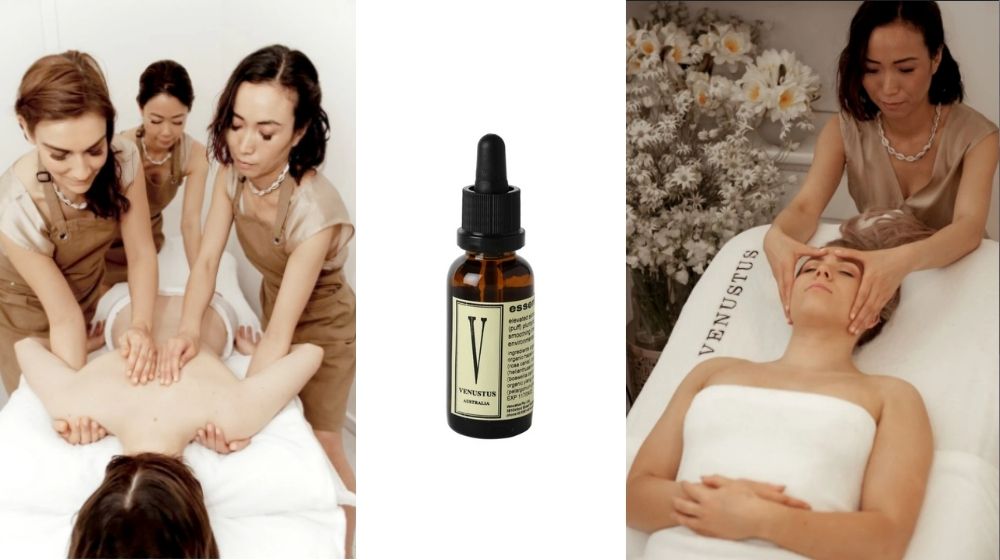Many businesses say they’re “a family,” but few come as close as Jeannie Bourke and her team at Venustus, Paddington. Jeannie and her therapists have worked together for over 20 years, bringing holistic treatments to Sydney’s stressed-out skin obsessives. She talked to Ruby Feneley about training and retaining the people who bring your beauty business to life.
The Venustus philosophy:
Clients who have visited Venustus can find it hard to describe the experience. One Google reviewer writes: “An incredibly special space that cannot be described as simply “a spa” or “salon,” the angelic staff give so much of themselves to heal their clients.”
Jeannie tells me that her staff are trained beyond beauty therapy: they practice reiki, aromatherapy, remedial massage, hot rock, shiatsu and crystal healing – and work with shamans on a regular basis. None of this is covered in dermal or beauty therapy training and all of it is taught by Jeannie herself – the interdisciplinary training takes years for each team member.
Jeannie has built a business focused on healing the physical, mental and spiritual. A trip to Venustus starts with a consult in which Jeannie herself works through pain points in your life, the way a physio might target knotted muscles. She says her first attraction to beauty therapy came from its ability to shift emotion: “The first time I received a facial, I just knew I wanted to be able to make people feel that good!”
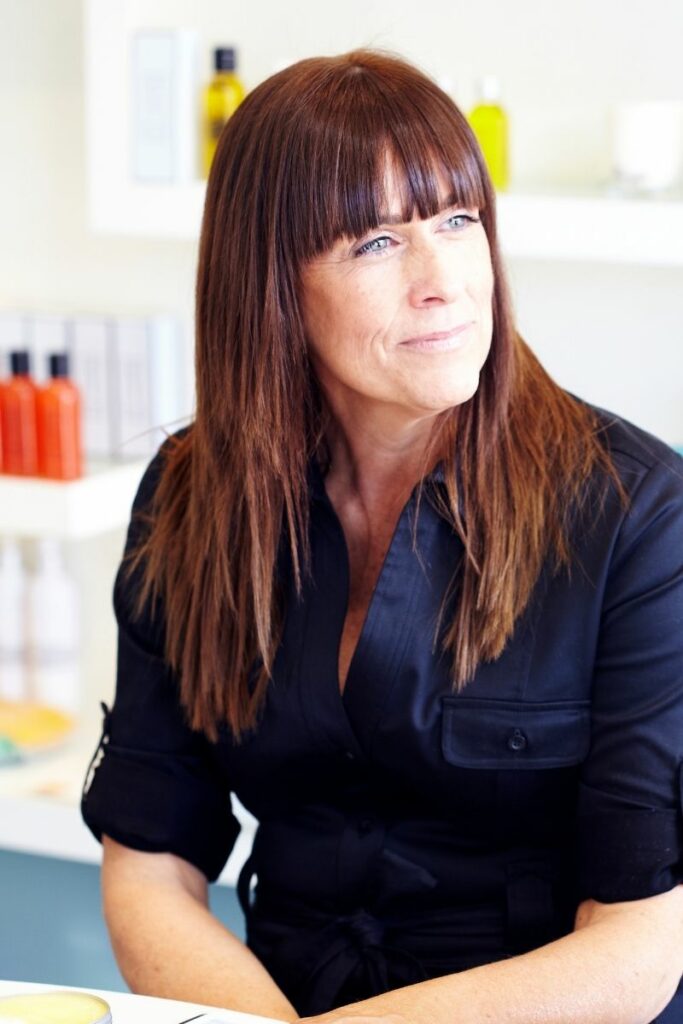
Venustus’ service offering draws from practices found all over the world. She said her first exposure to the philosophy that would underpin Venustus came from an unexpected place: a steak and onion sandwich. She tells me: “I grew up in a very white family. We were selling sausage rolls, steak and onion sandwiches at Flemington markets every weekend. But around us were all these different stalls: Lebanese food, Greek food, people from all different cultures selling flowers and oils.”
She then travelled to Europe where she was enamoured by a holistic, and dynastic approach to trade and agriculture. She tells me: “In Italy, you see generations of families who work as bakers, and when you have that intergenerational accumulation of time and knowledge – they are incredibly gifted at what they do.” The decades of knowledge and the passing of knowledge takes time, however, and in the beauty industry where turnover of is high, it can be very difficult to achieve.
The “people problem”
For the Australian beauty industry, an issue that has been accelerated by COVID-19 has been what’s called a “talent shortage.” As salons rush to clear thousands of bookings following for months of closure, recruitment is kicking off or trying to. Wendy Michetti, Director at HABA tells me, “Everyone is screaming out for staff.” The reasons for this are multi-factorial: pandemic border closures have cut off the supply of British and Irish beauty therapists on working Visas.” Wendy also says the increased specialisation in the industry has made full-service businesses like Jeannie’s harder to staff: “You might be a full-service salon, but the therapist answering a job application may only want to specialise in skin, brows or lashes – so your pool of applicants is reduced.”
Jeannie decided she’d tackle this issue early in her career: “Everyone is shocked when I say I’ve had the same staff for twenty years” she laughs. Initially, like many business owners, Jeannie had a two to four-year turnaround in her business. But as her offering evolved and the services she wanted to perform became more complex, it became an enormous challenge, or as she tells me “It very quickly became a nightmare.” She explains that staffing is an issue that turns many entrepreneurs away from the industry. “You’re recruiting and training constantly – you get one person skilled up, and then someone leaves and you’re starting from scratch. A lot of my peers left because it became such a grind, the common thread was ‘the staff are the biggest problem.” Jeannie knew that something had to give.
She decided she wanted to keep her staff for life.
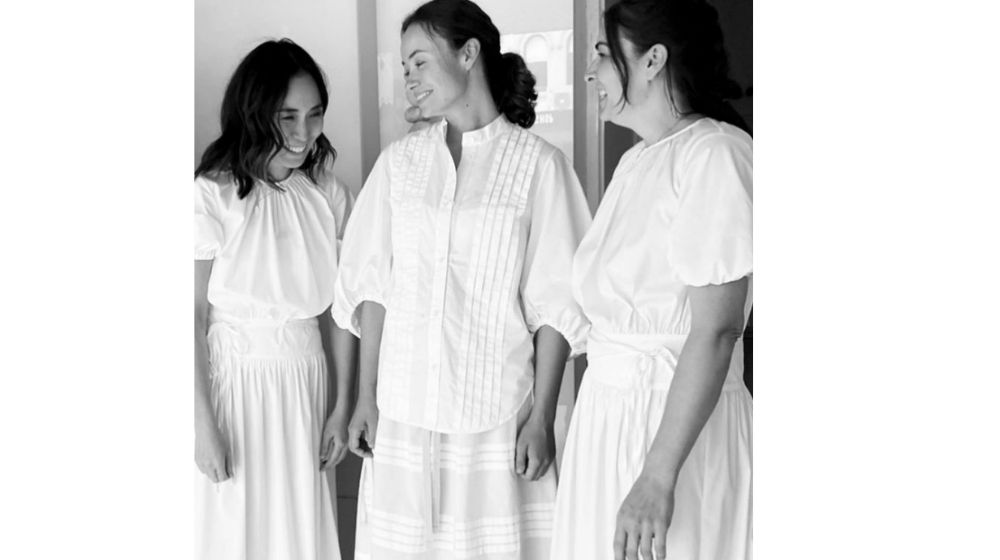
Creating a lifelong dream team:
Her first step was removing herself from services. “When I realised ‘this is not working, I was on the floor doing treatments with everyone else – I realised I needed to get off the floor.” As the owner and “the brand”, she was told this was a colossal mistake – “fortunately, I rarely listen to other people!”
She then looked at recruitment. She says of recruitment, “When you’re hiring, it’s not a perfect scenario where you’re scaling your business, and everything is wonderful. It’s usually been going great, and then someone leaves, and you’re scrambling.” Rather than focusing on the skills, Jeannie concentrated on what she needed from potential candidates – and this was their time. “We train so intensely and so broadly that even if you’re diploma qualified, first in your class, experienced, you will still spend years training to get across our offering – what I needed is a willingness to spend that time.” She soon found a quick way to establish whether the therapist had any intention of spending that time: “When you say, ‘I want you forever’ or ‘I want your whole career’ you can very quickly tell which ones are not going to stay longer than a year – because if they’re not, they look horrified!” Jeannie is understanding of this “you can imagine some poor person who came first in their class and paid thousands of dollars for a diploma.
Cultural fit and openness to learning are as essential as native ability. “I will have candidates in for paid trials, sometimes over multiple days. They will do the whole team, whatever they’ve trained in. I want to see it. It might be something we can use! They can also see what it’s like to work here and if it’s right for them, which is important.” Often Jeannie says, the paid trials don’t result in permanent employment. “It’s not because that person isn’t great, they just might not fit, or they might not be ready. I have told people to come back in three years and reapply. Unless they’re very dedicated and driven, it can be too much of a jump.”
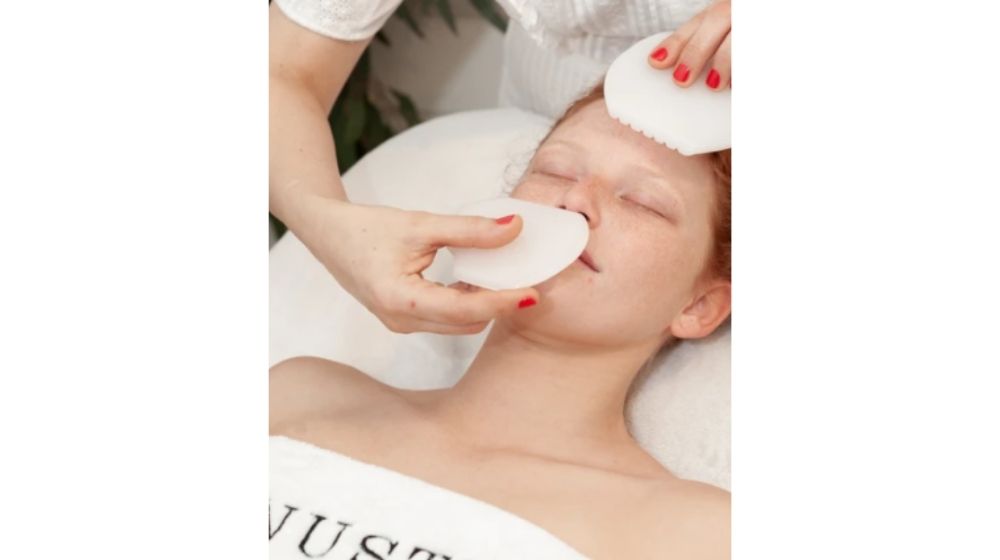
Because of the service models, Jeannie says the staff who “make it” at Venustus are drawn to the underpinning philosophy. “We had someone write on Instagram ‘don’t even bother applying if you’re not a vegan – which is not true! But my staff are drawn to that alternate world, but they want a structure of a career. Beauty therapy is our career and our Award. But we are also involved in energy work, healing, crystals. The men who work across the road think we’re witches because they see us saging!”
But keeping staff requires more than an alignment of values. Permanent contracts and competitive salaries are part of the picture. A culture of trust is another. “You can’t tell someone ‘I want your whole career’ and not give in kind. My philosophy is, very simply, to say yes to everything they ask for: from flexible working arrangements to the tools they need to do their job (all of Jeannie’s staff have access to her credit card)
She also encourages them to use the training they receive at Venustus to find themselves as beauty therapists. “I tell them, you need to work in a way that’s authentically you. You can’t be a replica of me. They find their energy and voice as a therapist, and if they’re working that way, they feel relaxed, they’re not tired or burnt out at the end of each day.” One hour at Venustus means something different for every client and every therapist. “My girls are free and encouraged to personalise and work on the fly.”
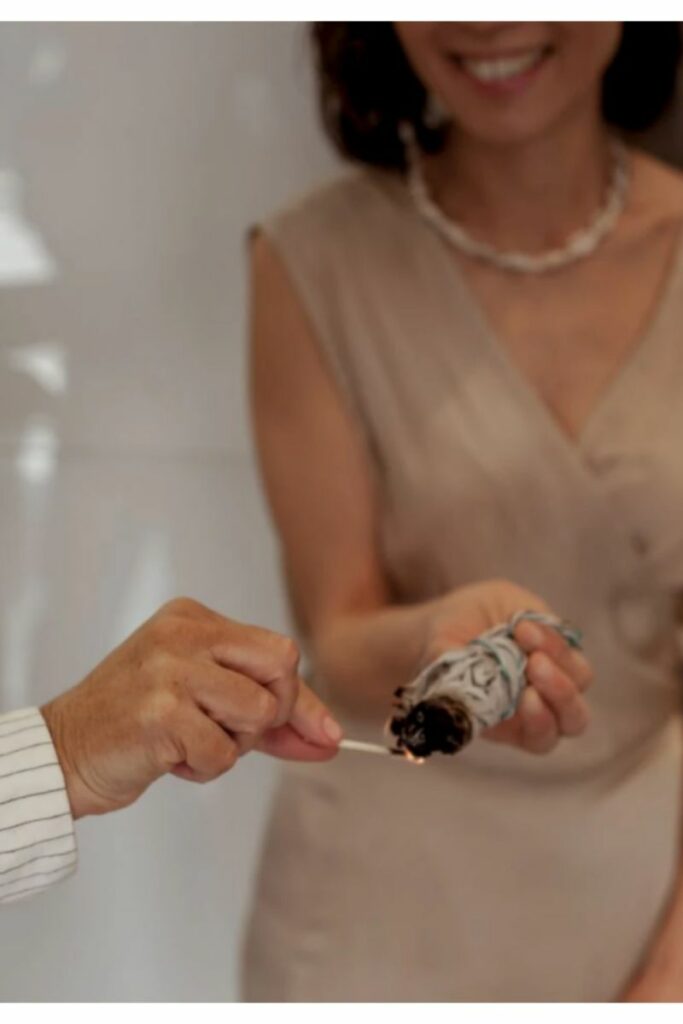
Jeannie has also found that some standard salon practices exclude fantastic team members. While Venustus has a product range, she does not set sales targets. This allows more introverted therapists to feel comfortable in the workplace. “I have worked at places where it’s all about tipping, commissions and targets. I’ve worked where people had to go if those commissions weren’t hit! But just because you’re not a salesperson doesn’t mean you don’t have other strengths to contribute. Some people like myself and Fleur (Fleur and Haruko have been with Venustus for over twenty years) are great talkers. Others are quieter – that’s wonderful because it allows us to relax.”
Tailoring feedback for different team members is essential. Sometimes Jeannie might have to remind a talkative therapist to draw some boundaries: “You can talk a bit but only for so long! Clients are just polite. Ultimately they’re there to relax.” Then for quieter staff encouraging communication can be a challenge: “I do tell them that to trust them; I need them to tell me when they’ve made mistakes. Some people have learnt that they need to hide their mistakes – they may have dropped a glass and got in trouble as a child!” they need to be encouraged to come to me because otherwise, I don’t know, and they won’t learn.” She says the best thing you can give your staff is advice and what you have learnt, and not just about your career. “Sharing information and ideas costs nothing. Suppose they need a broker to get their own home I’ll share what I have, my accountant, my people, any tips about schools, kids, finances. I never had that with anyone professionally. I never had a boss who gave me ideas about how I could make my life bigger or better or more!”
Jeannie’s team weekly WIPS have taken a different flavour during Covid. Like Jeannie, all her team have sons, although most of them are school age. She says for her all-female team, lockdown can be jarring. “We’ve wrenched from a very feminine world of serving and caring for people who are very grateful, and constantly tell us how wonderful we are” to what she calls “the male banter zone, which is very different for us.” While Jeannie doesn’t go so far as to say there’s a lack of gratitude, she says that her team’s video calls “get very real – we run through everything, complain about our husbands and children – let it all out!”
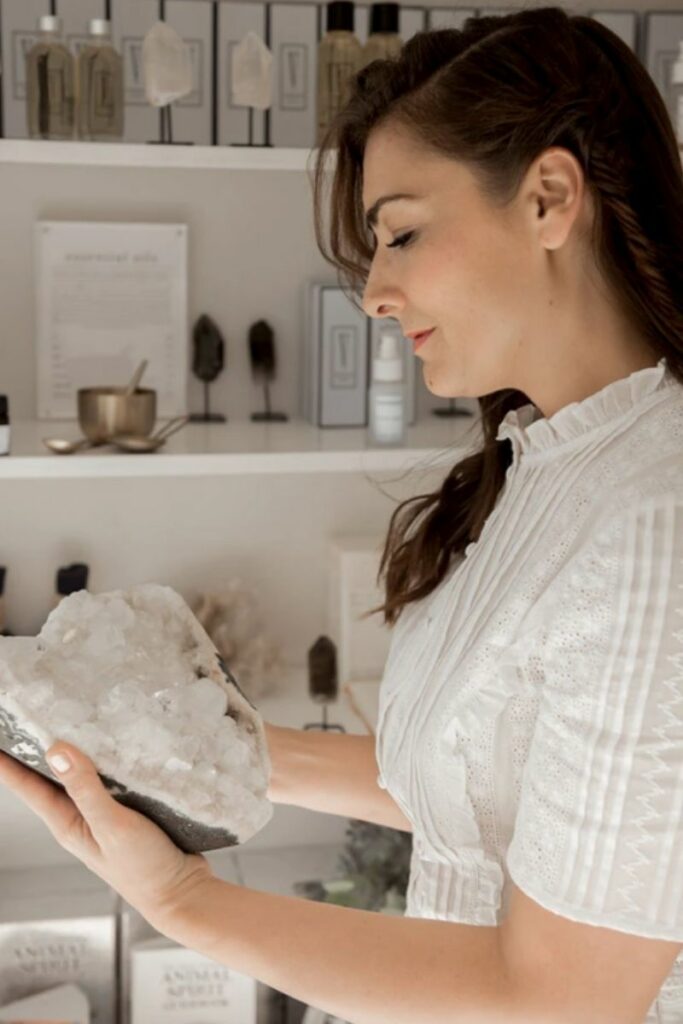
The horizon:
For the first time since they opened, Venustus will be moving house in 2022. But their clients won’t have to travel far to the new location – it’s right next door. Years after setting her sights on the building next door (“my real estate agent told me not to bother, a whole building won’t become available!”), Jeannie has acquired her dream location. “We’ve bought our first building, and it is exciting, scary and incredible.” Renovating from scratch, Jeannie’s team dialled in their shaman, based in Paris, to guide them as they buried slabs of crystal under the earth. Mementos from long-time clients and supporters were also included (Elle Ferguson was so shocked Jeannie hadn’t posted to Instagram that they had to do the ritual twice).
But it won’t be all new treatments – it will be enough to be working in a new space. “We might hire one or two more people, but it’s not about scaling up – if anything, it’s scaling down and allowing more space for our existing clients. I will have a rooftop garden where I can do my energy work. I like doing installations, so I see a window full of roses.” For Jeannie and her team, the future seems a sure thing.
Keeping your cool during the holidays season with Jeannie Bourke:
- Speak mindfully: “Conversation is so overrated – you don’t need thousands of words. It’s about reconnecting, and doing treatments is our connection to people. If you’re going to speak, make it count.
2. Assess afresh: “In terms of clients, I’ve told my staff to treat everybody like a new body. Don’t do what you’ve done before. Everybody will have dealt with the lockdown differently.”
3. Connect with nature: “We work with shamans a lot, but they’re simply there to remind us to get out in nature. Are you out under the sky? Being in nature helps heal, whether that’s the ocean, the forest, the grass. Whatever you can land on.”
4. Practice gratitude: Every day, I run gratitude. “I am grateful I can hear; I am grateful I can see, I am grateful I am a free woman – because half of the world is not.” Find what works, but running gratitude starts your day differently.
5. Create space: “Think about how you can be your best self for yourself. “It’s not about doing more work. It might be opening my son’s door to let the puppies in to wake him up instead of yelling at him! So, it creates a happier moment. That’s how you be the best for yourself.”
Read the current issue of our digital magazine here:
- For more news and updates, subscribe to our weekly newsletter
- Follow us on Instagram
- Like us on Facebook
- Join Australia’s largest network of beauty industry professionals on LinkedIn
- Subscribe to our print magazine
Have an idea for a story or want to see a topic covered on our site and in our pages? Get in touch at info@professionalbeauty.com.au.

